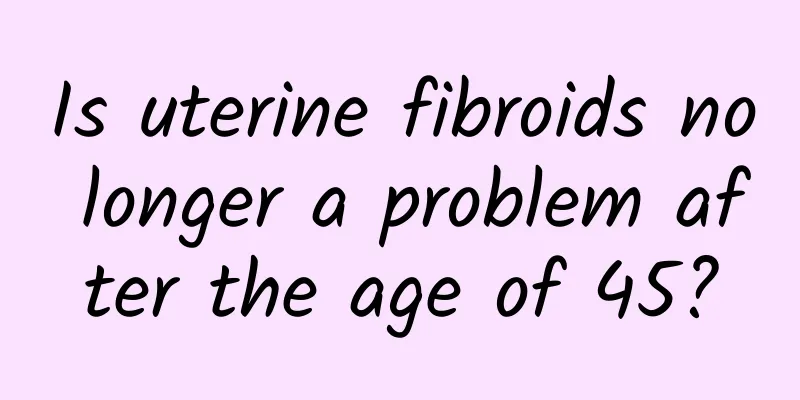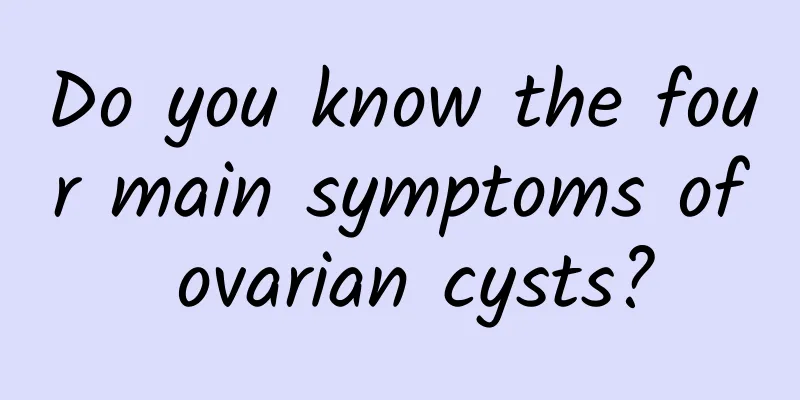Is uterine fibroids no longer a problem after the age of 45?

|
Uterine fibroids cannot be ignored after the age of 45. As women age, they gradually enter perimenopause and menopause, and their hormone levels change. A drop in estrogen levels may slow the growth of uterine fibroids, but it does not mean that the fibroids will disappear on their own. Some uterine fibroids may show symptom changes at this stage. For example, fibroids that were originally asymptomatic may experience pain, compression symptoms, or a sudden increase in size. Although the probability of uterine fibroids becoming malignant is very low, it is not completely impossible. Especially when the fibroids grow rapidly and abnormal symptoms such as irregular vaginal bleeding appear, you need to be alert to the possibility of malignant transformation and must conduct further examinations and treatment. If the fibroids are large, they may compress surrounding organs, such as the bladder and rectum, causing symptoms such as frequent urination, urgency, difficulty urinating, and constipation. Even after the age of 45, these compression symptoms will seriously affect the quality of life and require treatment. Knowing that you have uterine fibroids may bring psychological pressure and affect your mood and mental health. Timely attention and treatment of uterine fibroids can relieve the psychological burden. Although the probability of uterine fibroids becoming malignant is very low, it is not completely impossible. Especially when the fibroids grow rapidly and abnormal symptoms such as irregular vaginal bleeding appear, you need to be alert to the possibility of malignant transformation and must conduct further examinations and treatment. If the fibroids are large, they may compress surrounding organs, such as the bladder and rectum, causing symptoms such as frequent urination, urgency, difficulty urinating, and constipation. Even after the age of 45, these compression symptoms will seriously affect the quality of life and require treatment. Knowing that you have uterine fibroids may bring psychological pressure and affect your mood and mental health. Timely attention and treatment of uterine fibroids can relieve the psychological burden. Uterine fibroids cannot be ignored after the age of 45. Regular examinations, conservative observation or appropriate treatment measures should be carried out according to the specific conditions of the fibroids to protect women's physical health and quality of life. |
<<: Can I take birth control pills more than a month after ectopic pregnancy surgery?
>>: Does pelvic effusion need treatment?
Recommend
Three dietary treatments for ovarian cyst patients
Patients with ovarian cysts should strengthen the...
What are the common symptoms of cervicitis?
The cervix is an important part of a woman'...
What should adolescent girls pay attention to when they suffer from functional uterine bleeding?
There are differences in the physical fitness of ...
Recommended hospitals for the treatment of threatened abortion
It is very important to choose the right hospital...
Eat good oil, healthy and green! It has unexpected benefits such as weight loss, cancer prevention, anti-aging, and beauty care
Eat good oil and live a healthy and green life! G...
What are the symptoms of ectopic pregnancy in women?
Ectopic pregnancy is one of the gynecological acu...
What foods are good for women with chronic cervicitis? Dietary conditioning methods for women with chronic cervicitis
Cervicitis is a common gynecological disease. If ...
Nursing care of patients with congenital absence of vagina and uterus
What are the nursing methods for patients with co...
Women should pay attention to the prevention of dysmenorrhea in time
Dysmenorrhea is a common disease among women. Gen...
What causes pelvic effusion?
What causes fluid accumulation? From a medical po...
Diet therapy can help you solve the pain of dysmenorrhea
"Abdominal pain during menstruation" is...
What medicine should I take for thick endometrium?
Thick endometrium is actually a relatively common...
What should women eat during the recovery period of cervical erosion? Diet recommendations for women during the recovery period of cervical erosion
Dietary therapy is a treatment method favored by ...
A must-eat to control your appetite! Protein is recommended for weight loss
Most people will inevitably have a lot of social ...
Causes of early threatened miscarriage
Many young women are busy with work every day and...









